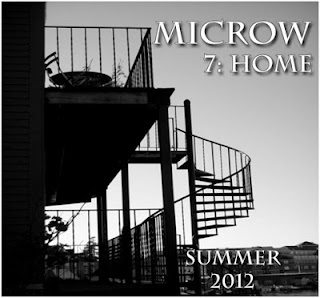 The last day of the year is as good a time as any to take stock of where I've been. The past year brought challenges--loss of our spiritual community, an over-demanding day job, adjustment to life without the presence of people we loved--as well as rewards, including healthy and happy children, a beautiful home and garden, good friends, weddings and other celebrations, and adventures with family and friends. The year also brought a bit more (and much-needed) diversity to my life.
The last day of the year is as good a time as any to take stock of where I've been. The past year brought challenges--loss of our spiritual community, an over-demanding day job, adjustment to life without the presence of people we loved--as well as rewards, including healthy and happy children, a beautiful home and garden, good friends, weddings and other celebrations, and adventures with family and friends. The year also brought a bit more (and much-needed) diversity to my life. Hitting the half-centennial mark this year brought several realizations: time on the planet is short; there is no need to rush; small items carry more weight than large. I've tried to take a slower approach to most facets of my life, including writing. My yoga practice has helped in this regard, helping me become more mindful of the instant, and of those around me. But those of you who know me know I have a difficult time staying put, not pushing on to the next 'to-do'; learning to linger is my continuing challenge.
The year in review:
Family: My children are finding their niches, and I am thrilled they find themselves creators: of art, of music, of small bits of beauty. They became more resourceful this year, and independent. My husband also found time to garden, to explore new religious and spiritual practices, to think outside the box. We saw grandmothers, nearly every aunt and uncle, cousins--some several times over. We visited alpaca farms, bowling alleys, home-made ice cream stores, beaches, flea markets and yard sales, and much, much more. We are blessed.
Friends: When my husband lost his church, we lost our built-in community. It has taken some time to rebuild, to find new ways to connect with those I knew in the church context, as well as to develop new friendships outside of a spiritual home. A small group meets monthly to w(h)ine; other friends come from my writing spheres and work. And of course, there are my cyber friends, some of whom I met in person. For all of you, I am grateful.
Work: I am fortunate to work with an amazing team of students, post-doctoral fellows, and staff on two projects with clinical and policy importance: antipsychotic use in nursing home residents, and reporting state-wide use and consequences of alcohol and drugs. But in 2012, work remained the one area that overtook my time; like kudzu, it is difficult to trim back. While grateful for my job, a goal for the upcoming year will be to better manage the expectations of work with the rest of my life.
Writing: I'd like to think this year focused on quality over quantity. Being a part-time MA student ate into my available writing time, even though the classes themselves produced a lot of knowledge and a lot of words. To quantify: 2 blogs; 265 blog posts; ~60,000 words on THE MINISTER'S WIFE; 39 poems; one proper short story; a dozen micro-fictions; countless revisions of older stories.
This past year, 16 stories or poems were published (5 in print), netting me $75 and a Pushcart nomination (for COCHINOS, found in the summer issue of MiCrow). I thank the editors of Smokelong Quarterly, Pure Slush, Right Hand Pointing, Microw, Scissors and Spackle, Blue Five Notebook, A Baker's Dozen, The River Poet's Journal, Metro Fiction, and Press 53 for finding merit in my words. Also, thanks to Robert Brewer for selecting a poem for the 2013 Poet's Market, out this past September. Two stories found their way into books: LUCKY in Gorge, a novel in linked stories (Pure Slush Press), and WHITE in the Best of Friday Flash II anthology.
Every morning I try to remember what a gift it is to do just that: wake up. Every breath is a blessing.
And you? Where did you go this past year?
Peace...




































